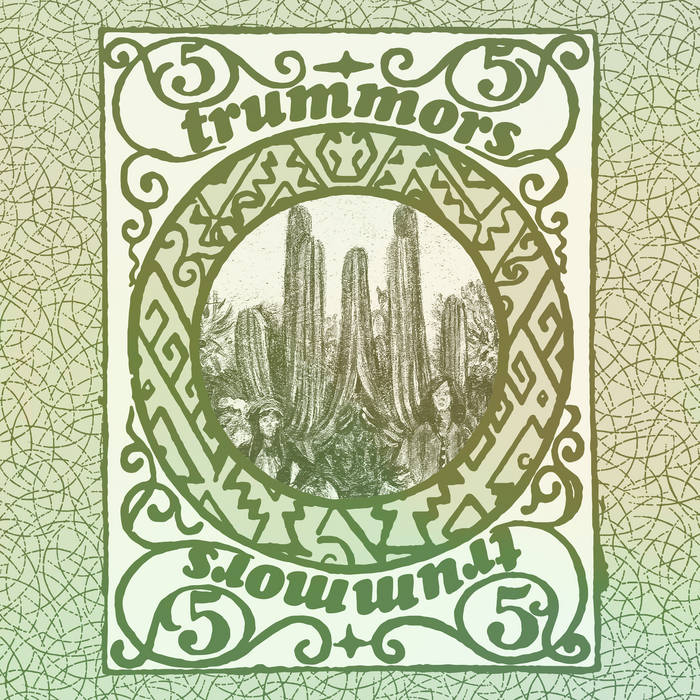
Trummors "5"
The trouble with so much Cosmic American Music is that it’s not all that ‘cosmic’ at all. The moves are there—the mood, the ingredients, musical and (ahem) otherwise, the clothes—but the substance too often comes up a little thin. Maybe that’s fine: the Flamin’ Groovies weren’t quite the Beatles either, and so to criticize the heirs of the Flying Burrito Brothers for failing to equal their forebears’ sense of stoned celestial wonder feels a little mingy, like criticizing tomorrow for not being 1972. Enter David Lerner and Anne Cunningham’s duo Trummors, though, with their fifth and possibly best album—“possibly” only because the others, too, are so damn good—to blow this frequent quibble clean out of the water. 5 (yeah, they went ahead and made their Numerical Album, just like J.J. Cale once did) is so fresh, so sparkling, and so lovely, whatever debts it owes to anybody else are immediately canceled. This may be music with an abundant sense of history, a deep, almost Talmudic knowledge of a thousand country rock records, but it steps outside the shadow of that knowledge with a confidence that feels rare indeed.
Some of that is in the writing. A song like “Hey Babe” might seem a wisp of a thing, until you listen twice and clock lyrics as fatalistic, and as beautifully compressed, as a Robert Creeley poem, coupled with a melody that feels like it’s lived inside you forever. Some of that is in the performances, the way Lerner and Cunningham’s vocals fit together just so, as ideally paired as George and Tammy’s as they float atop accompaniments from their supporting players—Dan Horne’s spacious pedal steel on “Yellow Spanish Roses,” say, or C.J. Burnett’s spare, not-quite-barroom-feeling piano on “The Jalisco Kid”—that somehow manage to be at once understated and arresting. Some of it might be the occasional ways they make subtle adjustments to genre conventions (“Cosmic Monster” sounds closer to English psych monsters Dantalian’s Chariot than it does to canyon country, thanks to Clay Finch’s electric sitar) without sounding schizoid or breaking faith with the record’s overriding mood and identity. But none of that really accounts for 5’s startling and unshakeable immediacy, its ability to cut through the fog in one’s head and one’s mood every time it comes pouring out of the speakers.
Lerner and Cunningham lived with these songs a long while, writing them before the Pandemic struck in 2020, demoing them at home repeatedly before finally deciding to get together with Horne—an alumnus of previous records, too, as a player—in the producer’s chair for the first time. They tracked the record in LA over the span of about a week, did a bit of overdubbing later in Taos, and thus, after that long period of uncertainty, 5 arrived at its final form fairly quickly. Maybe it’s this paradox, this meeting of speed and deliberation, that gets at the record’s most striking quality, how these songs feel at once heavy and light, ancient and new, like something carved into stone with a feather. It’s a quality that fills me with admiration. Indeed, with something close to awe.